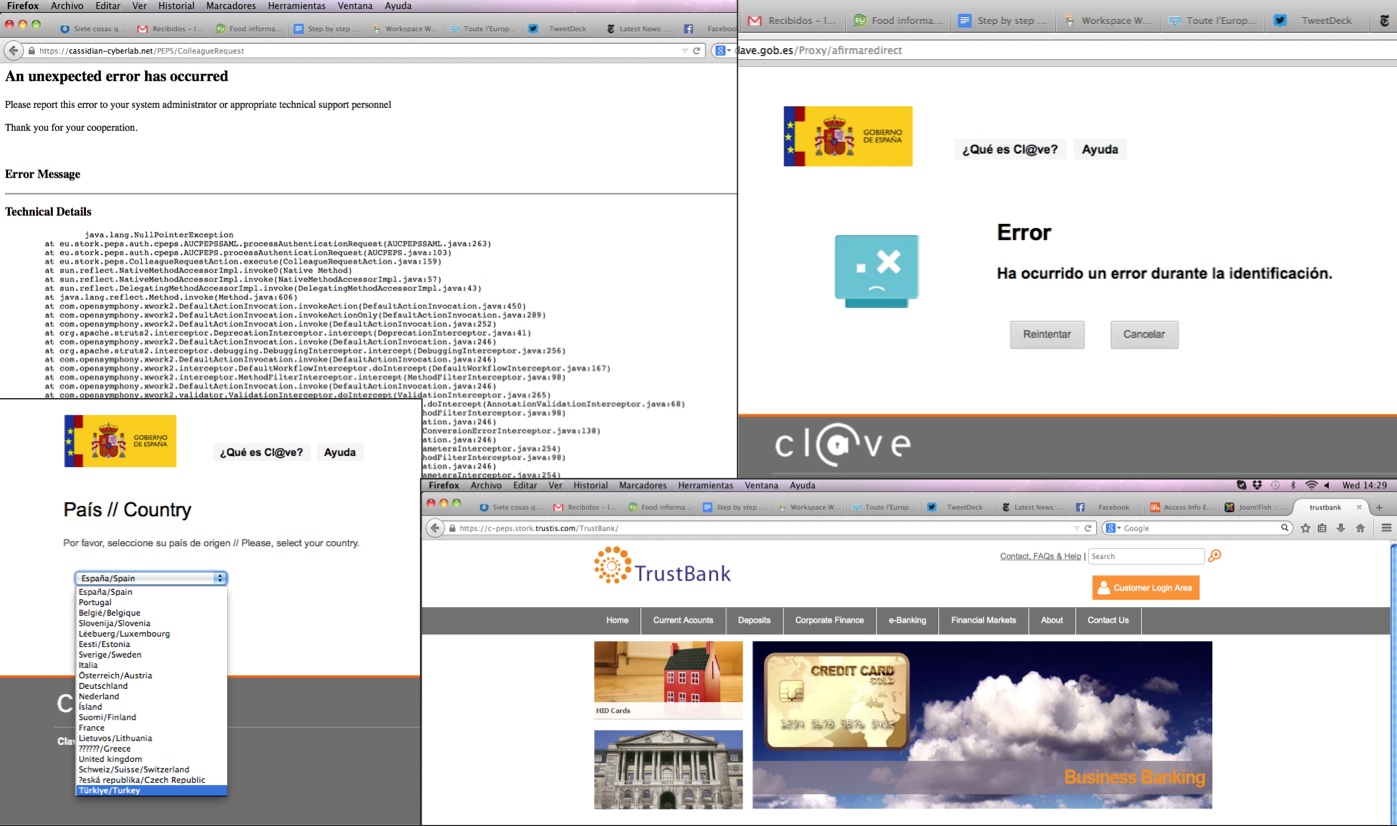Madrid, 17 December 2014 – Access Info Europe today presented a complaint to the Spanish Ombudsman raising concerns about obstacles to the right to request information under the Spain’s transparency law that entered into force on 10 December 2014.
There are two elements to the complaint: First, that requesters may only send information requests via the Transparency Portal by complicated and time-consuming process, which resulted in no member of Access Info Europe has yet having completed the bureaucratic steps necessary to be able to submit a request. Secondly, requesters are required to use official and verified identification in order to make an access to information request.
Another dimension to the complaint is that the Transparency Portal excludes the possibility for non-Spanish citizens to send requests. Citizens from certain European countries can theoretically send requests using the Portal, but in fact even some of these links to not work.
“As well as excluding many people, these requirements are obstacles to the right to access to information quickly and easily,” commented Victoria Anderica, campaign coordinator at Access Info Europe.
“Being forced to register for any of these identification methods is a limitation on the right to information. It is a particular disincentive if the requester has to provide their bank account number, or to take the time to register for and install on their computer a digital certificate,” added Anderica.
The four options offered by the Spanish Government for presenting requests also presume access to a computer and the internet:
» Via electronic Spanish ID: According to Spain’s National Statistics Institute, in 2014 47,9% of population aged 16 to 74 had an electronic ID card with a microchip, but only 8,5% of them have the card reader (which has to be bought by each user) needed to use the electronic ID.
» Via specific digital certificate: According to official statistics, there are 3.972.705 active certificates as of 16 December 2014, out of a population of 47 million.
» Via the Cl@ve system: Requesters must register with the Spanish tax authorities by providing details of the bank account number they use to pay taxes. They must then either go to a Tax Agency office or wait until they receive a code by post.
Access Info Europe’s Director Helen Darbishire has chosen the last option, and is now waiting for the postal delivery of the code needed to register online and to then submit a request.
Access Info questions need to identify the requester
Regarding the fact that an ID is needed to make a request, the Spanish Government is insisting upon this as they consider a request to be an administrative process. Nevertheless on 9 December 2014, Spain’s General Council of the Judicial Power stated that they will not be asking for any ID number as they consider access to information to be a fundamental right.
In 2009 the European Court of Human Rights recognized access to information held by public bodies as a fundamental right, this being confirmed in 2011 by the UN Human Rights Committee. Given that both institutions oversee treaties Spain has ratified, the Spanish Government should have recognised this right as a fundamental one [1] when they put forward the transparency law. What they can now do, at least, is respect this right in practice.
Supporting the arguments against the need to provide an ID, the Council of Europe Convention on Access to Official Documents encourages states to permit anonymous requests, given that it is a logical consequence of the principle of not needing to give reasons for making a request.
“We can confirm without doubt that Spain imposes more obstacles on requesters than any other country,” said Helen Darbishire, Executive Director at Access Info Europe, and who has submitted requests in many countries around the world.
“Information is public and the identity of the requester is irrelevant,” concluded Darbishire.
Access Info Europe and Fundación Ciudadana Civio have yet to receive a reply to a letter sent on 20 August 2014 asking Spanish State Secretary José Luis Ayllón Manso to clarify the status of preparations for implementation of the law. You can read the letter, in its Spanish version, here.
[UPDATE, 16 February 2015 – Access Info Europe received State Secretary José Luis Ayllón’s response on the 12 February 2015. You can read the letter here.]
For more information, please contact:
Victoria Anderica | Access Info Europe
victoria@access-info.org +34 606 592 976
Note to editors:
[1] Article 10.2 of the Spanish Constitution states that: “The norms relative to basic rights and liberties which are recognised by the Constitution shall be interpreted in conformity with the Universal Declaration of Human Rights and the international treaties and agreements on those matters ratified by Spain.”

